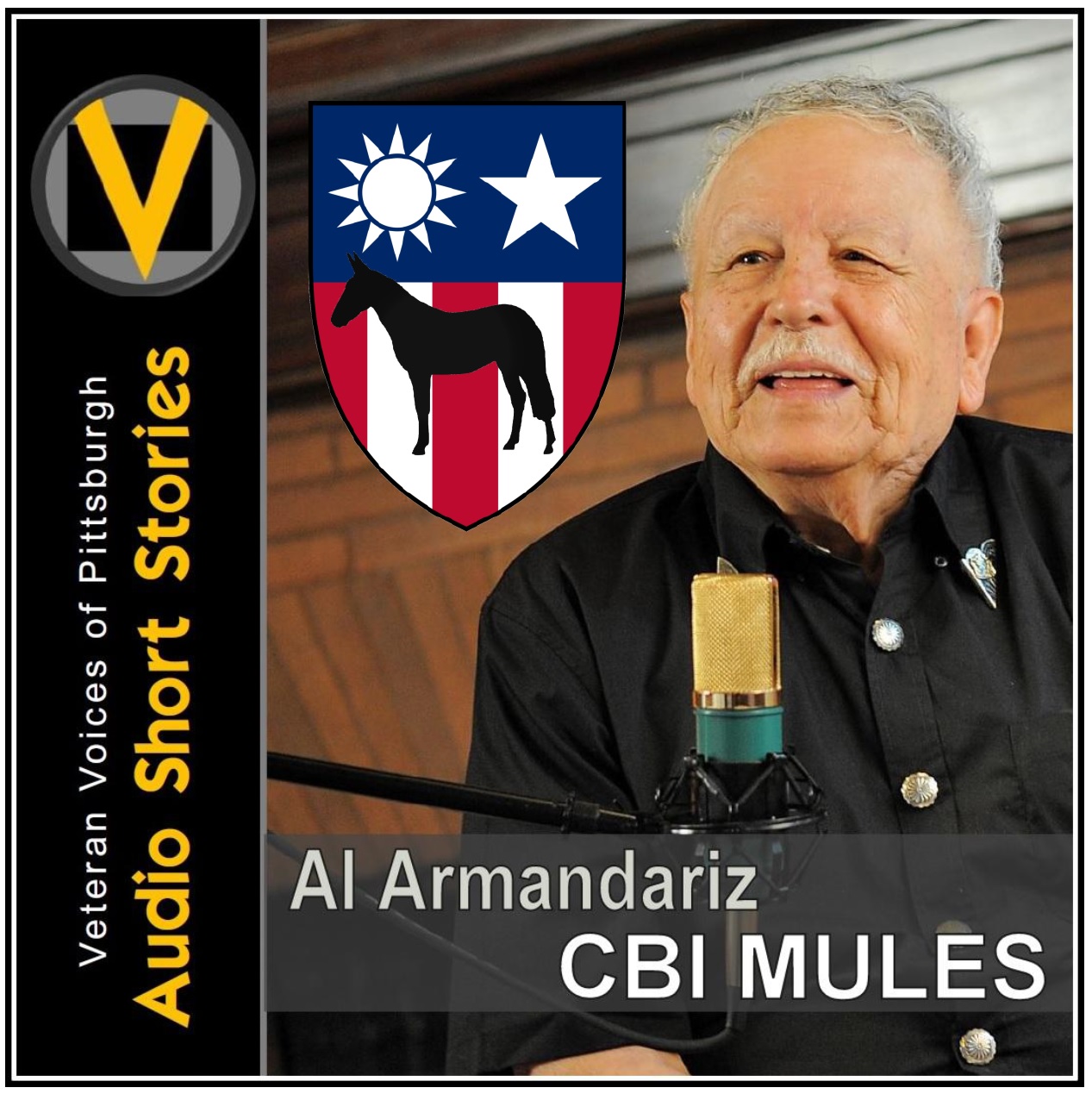CBI Mules | Al Armandariz
On this episode of Argot: Audio Short Stories from the Veteran Voices of Pittsburgh Oral History Initiative Collection, Pittsburgh WWII veteran Al Armandariz recalls the humane treatment given to army mules used in the China-Burma-India Theater.
Podcast (argot-the-audio-short-story-collection): Play in new window | Download | Embed
Choose where to listen and subscribe: Apple Podcasts | Email | RSS

Since he was a kid, Al Armendariz had always been fascinated by medicine. He joined the army after the attacks on Pearl Harbor and entered basic training and medic training. He remembers his drill sergeant taking role call at 4:30 A.M. His motto? “We break you, or you’ll break us.”
As a Latino who grew up in Los Angeles, Al experienced discrimination in the army. He was always chosen to be the one in the kitchen cleaning dishes. “I didn’t join the army to be washing forks and spoons.” He remembers how other Latinos he knew felt. “We were like prisoners,” he says. “Even when you were in your barracks, you were on call . . . it was very depressing.”
Al was shipped overseas in 1944. After landing in Bombay, he worked as a medic, treating people who had been in accidents, had malaria, or even burn cases. He cared for locals too, despite being ordered not to. Al recalls the animals he saw in India, from the army mules to Bengal Tigers. He also had two pet monkeys, Tojo and Mike. Al says he was just an ordinary sergeant. “So I taught Tojo to salute me!”
__________________________________________
This episode was recorded December 15, 2018 in Beaver Falls, Pennsylvania. It is based on the oral history interview conducted April 9, 2012 by the Veteran Voices of Pittsburgh Oral History Initiative, in cooperation with the Veterans Breakfast Club. Audiography: Kevin Farkas. Music (available on SoundCloud.com): Naoya Sakamata (“Atmosphere Op2”). Other Sounds: Dept. of War: “U.S. Army Drafts Missouri Mules” (1943). ©Argot: Audio Short Stories Podcast/The Social Voice Project, Inc. All rights reserved.
SUPPORT LOCAL HISTORY
Let’s keep local history alive for future generations! If you like our podcast, please help us continue this great educational program–for today and tomorrow. Show your support by making a financial donation, underwriting the podcast, or advertising your business or service on the show.

You must be logged in to post a comment.